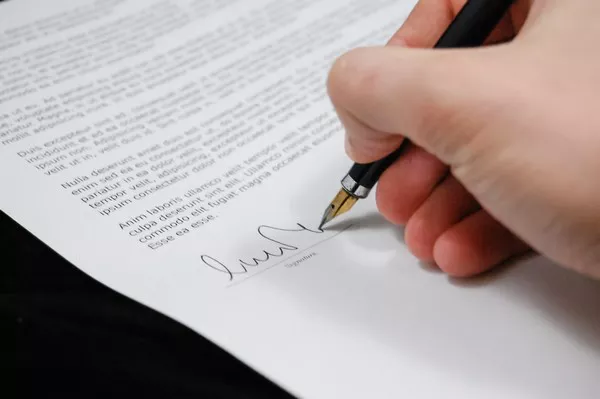Jealousy is an emotion that has been widely discussed in the context of romantic relationships, but it can also play a significant role in friendships. While it is often seen as a natural response to insecurity, comparison, or perceived threats, jealousy can also have a destructive impact on the dynamics of a friendship. So, the question arises: Is jealousy toxic in a friendship? In this article, we will explore the ways in which jealousy manifests in friendships, how it can harm the relationship, and how to address it in a healthy and constructive manner.
Understanding Jealousy in Friendships
Jealousy is a complex emotion that can stem from various sources. In the context of friendships, jealousy often arises when one friend feels threatened by the success, attention, or closeness of the other friend. It may be triggered by a variety of situations, such as when one friend forms a new close relationship, receives recognition or praise, or experiences positive life changes that the other friend feels left out of or envious of.
While a small amount of jealousy may seem harmless and even normal, the key lies in how it is managed and expressed. Healthy friendships are built on trust, open communication, and mutual respect. When jealousy begins to undermine these foundational elements, it can lead to tension, resentment, and ultimately harm the relationship.
The Signs of Jealousy in Friendships
Jealousy in friendships may not always be obvious at first. It can manifest in subtle ways, and often, the jealous friend may not even be aware of how their emotions are affecting their behavior. Here are some common signs of jealousy in friendships:
1. Passive-Aggressive Behavior
One of the more subtle forms of jealousy is passive-aggressive behavior. A jealous friend may not express their feelings directly but might engage in indirect actions like giving backhanded compliments, making snide remarks, or withdrawing emotionally. For example, if one friend receives praise for an achievement, the jealous friend may downplay the success or make a comment like, “Must be nice to get all that attention.”
2. Comparing Achievements and Life Circumstances
Another sign of jealousy is constant comparison. A jealous friend might frequently compare their achievements, possessions, or life experiences to those of their friend. If one friend gets a promotion at work, buys a new house, or enters into a new relationship, the jealous friend might feel inadequate or resentful. This can lead to feelings of competition or the belief that their own successes are less significant.
3. Seeking Attention or Validation
In some cases, a jealous friend may seek attention or validation in unhealthy ways to combat feelings of inadequacy. They may intentionally try to outdo their friend or draw attention away from the other person’s accomplishments. For instance, if one friend shares good news about their life, the jealous friend may try to divert the conversation to something about themselves or act out in order to regain the spotlight.
4. Emotional Distance or Withdrawal
Sometimes, jealousy can lead to emotional withdrawal or distance in a friendship. The jealous person may begin to pull away from their friend, either as a result of feeling threatened or because they believe they are no longer receiving the attention or affection they once had. This withdrawal can be confusing for the other person, who may feel unsure about why the dynamics of the friendship have shifted.
How Jealousy Can Be Toxic in Friendships
When jealousy is not addressed or managed effectively, it can lead to toxic behaviors that ultimately damage the friendship. Here are some ways jealousy can become toxic in a friendship:
1. Erosion of Trust
Trust is a cornerstone of any healthy friendship. Jealousy, particularly if it manifests as insecurity or resentment, can erode this trust. If a friend feels that they are being undermined or belittled due to their achievements, it may lead to a breakdown in the emotional security that comes with knowing you can count on someone. As trust is compromised, the emotional bond between friends weakens, and the foundation of the relationship becomes unstable.
2. Communication Breakdown
Jealousy can also lead to communication breakdowns. A jealous friend may become less open or honest with the other person, which prevents healthy dialogue. Instead of talking about their feelings or addressing the root causes of their jealousy, they might resort to passive-aggressive comments or avoidance. This lack of open communication can create confusion and frustration in the relationship, making it difficult to resolve issues or understand each other’s perspectives.
3. Resentment and Bitterness
Over time, unresolved jealousy can lead to deep-seated resentment and bitterness. The jealous friend may begin to harbor negative feelings toward the other person for their success or happiness, even if those feelings are irrational or unfounded. This resentment can fester beneath the surface, leading to passive-aggressive behavior or outright hostility. Eventually, the jealousy may cause one friend to feel as though they can no longer celebrate their successes or share their achievements with the other person.
4. Competition and Rivalry
One of the most damaging aspects of jealousy in friendships is the potential for unhealthy competition. If jealousy turns into a rivalry, the focus of the friendship shifts from mutual support to outdoing one another. Instead of celebrating each other’s accomplishments, both friends may start trying to one-up each other. This can create a toxic environment where both individuals are focused on personal gain rather than building a supportive, loving relationship.
5. Decreased Emotional Support
A true friend is someone who offers emotional support, empathy, and encouragement. However, jealousy can prevent one friend from offering genuine support to the other. A jealous friend may downplay the achievements of their friend, offer criticism instead of congratulations, or fail to show up when their friend needs emotional support. This lack of emotional availability can be damaging and ultimately leave the friend who is being targeted feeling isolated and unsupported.
Is Jealousy Always Toxic?
While jealousy in friendships can certainly be toxic, it is important to acknowledge that not all jealousy is inherently harmful. A certain degree of jealousy can be natural in close friendships, especially when one friend experiences a significant life change, such as a promotion, a new relationship, or other accomplishments that the other person feels may threaten the bond they share. However, it is how this jealousy is managed that determines whether it becomes toxic or can be worked through.
In healthy friendships, jealousy is often a temporary feeling that arises from insecurity or fear of losing the relationship. It can serve as a signal that the friend values the relationship and wants to maintain their bond. In these cases, jealousy can be addressed openly and respectfully, allowing both friends to understand each other’s feelings and strengthen their relationship. When handled with care, jealousy does not necessarily have to destroy the friendship.
How to Address Jealousy in Friendships
If jealousy is becoming a problem in a friendship, it is essential to address it in a constructive manner. Here are some steps to help manage and mitigate jealousy in friendships:
1. Open and Honest Communication
The first step in addressing jealousy is communication. Both friends need to express their feelings openly and without judgment. The friend experiencing jealousy should share their insecurities or concerns, while the other person should listen empathetically and provide reassurance. It is essential to approach the conversation with understanding, not defensiveness, and to focus on resolving the issue rather than assigning blame.
2. Reaffirm the Friendship
Both friends should reaffirm their commitment to the relationship. Jealousy can often stem from a fear of losing the bond, so reaffirming the importance of the friendship can provide reassurance. Expressing gratitude for the friendship and the value it brings can help both individuals feel secure in their connection.
3. Set Boundaries
If jealousy is arising from a specific issue or circumstance, setting clear boundaries can help alleviate tension. For example, if one friend is feeling threatened by the other’s new romantic relationship, setting boundaries around time spent together or the way certain topics are discussed can help reduce the emotional impact. Boundaries should be discussed and agreed upon mutually to ensure both friends feel comfortable and respected.
4. Encourage Individual Growth
Healthy friendships are built on mutual respect for each other’s personal growth. Encouraging each other’s success and independence can help reduce feelings of jealousy. When friends support each other’s personal development, they create a positive environment where both individuals can thrive without feeling threatened or competitive.
5. Seek Outside Help if Necessary
If jealousy persists despite efforts to address it, seeking outside help may be necessary. This could involve talking to a therapist or counselor who can help both friends explore the underlying causes of jealousy and develop healthier ways to manage it. In some cases, professional guidance can help break through deeply rooted insecurities and improve the dynamics of the friendship.
Conclusion
Jealousy in friendships can be toxic if it leads to unhealthy behaviors, communication breakdowns, and emotional distance. However, when addressed constructively, it does not have to destroy the bond between friends. Open communication, mutual respect, and a willingness to work through insecurities can help manage jealousy and ensure that the friendship remains strong. In the end, the goal is to create a relationship where both friends feel supported, valued, and secure, allowing them to navigate the complexities of jealousy in a healthy and positive way.
Related topics:





















